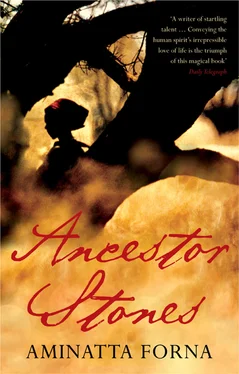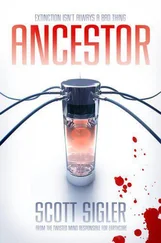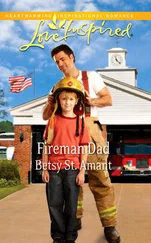The court imposed a fine for woman damage.
The elders of the court saw this was a time to be firm, to teach a lesson to those young men who could not afford wives of their own. But they were too quick to make an example of the Cement Man.
And my father — he overplayed his hand, he underestimated his tenth wife.
We went with her. At first we moved around. We stayed with my mother’s mother in her house in the town, a house built on stilts. The house of treats, where a pot of tea warmed on the sideboard all day long, where my grandmother let us play with her hair and sleep in her bed at night and gave us little sips of condensed milk. More than once our mother left us for a few days.
All the time I waited to go home. I have forgotten now the moment when the consciousness flowered. It happened out of sight, like a night bloom. Closed one day and open the next. We were never going home. I was a child. It was not for me to ask. No. You overhear a little thing here, another thing there. And some things you pick up when you are a child, you only really understand when you become an adult.
At some point I came to understand all of it: the travelling, the boarding, the buying and selling; all of this was so my mother could pay her bride price back. To free herself from our father.
A long time later I was standing underneath the cold neon light in a supermarket. Around me people were opening boxes of eggs, checking the shells for cracks. In my hand I held a box of half a dozen. A fat man with a beard dressed in blue one-piece overalls like a giant romper-suit swung into me. The carton spun upwards into the air, the eggs exited six ways. The fat man tried to catch them. He was surprisingly quick and snatched an egg out of the air. The shell broke in his hand. We were both left standing there. Bright yellow yolk and transparent mucous slid from his fingers. I found some tissues in my bag. We stared at the mess on the floor.
‘Leave it,’ he said. ‘They’ll get it.’ Waved his wiped-clean hand. Stepped around the mess.
We deliberately both walked away from it and from each other in opposing directions. And as I walked away I felt a shiver, a sensation of hot and cold, of some strange suppressed panic.
I travelled away, in a direction I didn’t want to go, backwards in time. For a long while the memory was gone. Only the feeling was left.
Back then we travelled east with a hot-metal smell in our nostrils, crouched on the floor of a mammy wagon, playing with tiny metal ball bearings, racing them up and down the floor. Yaya and I, we want to stand up and feel the hot, gummy wind in our faces, sit on the sides of the lorries like the young lorry boys lizardeyed in sunglasses, who perch with their backs to the cab, and sometimes crane over to talk to the driver through the open window. And never fall or have to steady themselves with undignified abruptness. Even when the truck drives over a pothole. Or lurches to a stop and the women all clutch at their leaping bosoms, and at the same time check the damp wads of cash strapped below their breasts. I want to stand up and reach up to catch the passing branches who nod their approval as we speed by.
I have never even seen a truck before, but I am fearless. In a very short time we two newly superior beings snigger at the foot travellers who drop their loads and flee into the bush at the approach of her stampeding wheels and roaring engine.
At the roadside a man is selling watermelons. The truck stops and people climb down. Some of the young men light cigarettes. The woman next to us asks me to mind her bundles and trots off into the bush, hitching up her skirt as she goes. The men wander beside the road, turn their backs, as though moved to contemplate the way we have just come. I walk over to look at the fruit stacked in a pyramid taller than I am. My mother comes up behind me and buys a melon from the vendor who breaks it open for us, pushing the point of his knife into the skin and forcing the flesh apart. And we eat slices of it with our faces turned to the wind, the pale pink juice drying sticky on our chins. And save the smooth black seeds and flick them out of the moving truck one by one.
Later we pass a bus with a broken axle, sliding sideways like a crab caught on the edge of the surf. We leave it far behind as we roll on past shanty towns of scrap metal and tin into the unknown. And there we arrive coated in dust, like we have been rolled in flour and readied for frying. And when I blow my nose the snot comes out red and thick.
At night the cockroaches drop from the ceiling of the rented room. And in the morning we find them lying upside down under the beds. And I sweep them out and wonder, do they fall from the ceiling already dead? Or do they faint trying to walk upside down and bash their brains out on the floor? Behind thin cotton curtains six other cots are partitioned off like separate states. They are empty. The town keeps nocturnal hours.
In the early hours of the morning the bursts of music, the shouts and the coarse laughter steal into my dreams. I lie wedged between my brother and my mother, our bodies stuck together with sweat.
By day Yaya and I stand on the town’s main street and watch rickshaws and carts bumping along the road. A truck full of men — shirtless, carrying picks and shovels — roars past, nearly knocking us down. Once in a while a shiny car glides by, scraping its suspension on the rutted road. We run alongside and try to peer through the dark glass. Try to imagine who could possess a vehicle such as that.
Eventually we stop and stand still, dizzy at the sight of so much. The people hurry past us heaving bundles, sacks and crates. People here rarely smile or greet each other. After a while I begin to notice that most of the people here are men. We walk past queues of them, arms and legs covered in cracked red mud like elephants’ skin, waiting outside the Syrian diamond traders’ shops. We press our noses against the windows, see men hand over leather pouches, dealers weigh little pieces of grey grit on tiny brass scales.
The view from our window looks out over pits that line the river like sores on a leper’s mouth. Men in loincloths wade up to their thighs through the rusty shallows, other men dig at the sticky mud with shovels, on the banks of the river more men sift the mud and water in round trays. A vaporous sunlight glazes their shiny black ant bodies and a sour wind drifts across the houses.
One carat equals ten pounds. Two carats equals twenty pounds. A full three carats equals one hundred and ten pounds. Enough to buy a fleet of bicycles, marry, build a house of baked bricks with a zinc roof.
Our mother’s bride price equalled the price of a one carat diamond. Cash only. On top of which she received a cow which was hers for the milking. Non-returnable. Two country cloths and four double lengths of waxed cotton, one dozen sticks of salt at two shillings each, cowries, rice, cocoa beans, gold and one umbrella, distributed to guests and family: all were listed by the court and added to the debt. To be repaid in full.
Our mother knew enough to know that the people who made money in the gold rush were not the miners, but the ones who sell buckets and spades. And so she buys a three-legged stand and sets herself up in business selling eggs on the roadside.
We buy our eggs for two pennies each, boil them and sell them for five pennies each. A perfect plan except that firewood is not free. Here the trees have all been pulled down to make way for the mines and railways. Firewood sells for fifteen pence a bundle in town, twelve pence a bundle on the road out of town. A dozen eggs equals twentyfour pence, plus fifteen pence firewood equals thirty-nine pence.
Twenty-one pence profit per dozen. And living costs and everything on top.
Читать дальше












